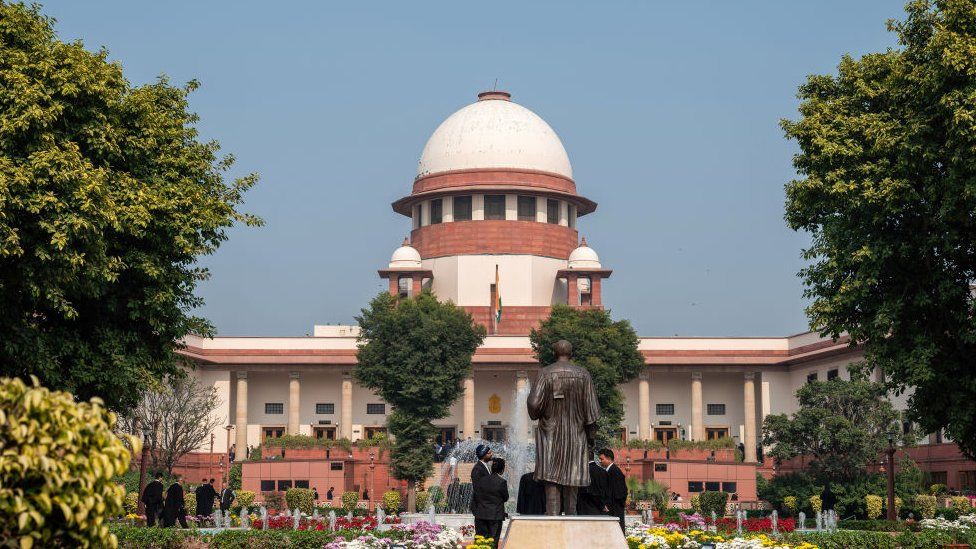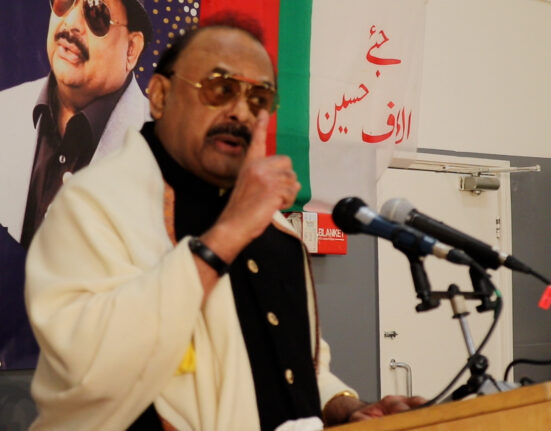India’s top court has struck down a scheme that allowed people to make anonymous donations to political parties, calling it unconstitutional.
Electoral bonds were launched by Prime Minister Narendra Modi’s government in 2018 to make political funding more transparent.
But critics say it’s done the opposite and made the process more opaque.
Mr Modi’s Bharatiya Janata Party (BJP) has received most of the funds through the bonds.
The scheme was challenged in the Supreme Court as a “distortion of democracy”.
On Thursday, a five-judge constitution bench ruled that electoral bonds violate citizens’ right to access information held by the government.
Chief Justice of India DY Chandrachud said the Right to Information (RTI) law is “not confined to state affairs but also includes information necessary for participatory democracy”.
“Political parties are relevant units in the electoral process and information about funding of political parties is essential for electoral choices,” he added.
The court directed the government-run State Bank of India (SBI) not to issue any more such bonds, to provide identity details of those who bought them, and to give information about bonds redeemed by each political party to the Election Commission within a week.
It also observed that electoral bonds were not the only scheme to curb the use of cash or “black money” and asked the government to explore other alternatives.
“Citizens have a duty to hold the government accountable for their actions and inactions, and this can only happen if the government is open and not clothed in secrecy,” the court said.

The government had defended the policy, saying it was introduced with the aim of eliminating cash donations to political parties as much of India’s elections are funded through private donations.
These interest-free, time-limited bonds are issued in fixed denominations – 1,000 to 10 million rupees (about $12.50-$125,000; £10-£99,560) – and can be purchased from a state-owned bank during specific periods through the year.
Citizens and firms can donate them to political parties without revealing their identities.
Only registered political parties who have also secured not less than 1% of the votes polled in the last election to the parliament or a state assembly can receive the bonds, which they have to cash within 15 days.
Supporters of the scheme argue that it makes the funding of political parties traceable and transparent while also protecting the identity of the contributor.
However, critics say that the bonds are not entirely anonymous since the state-owned bank has a record of both the donor and the recipient, making it easy for the ruling government to access details and “use” the information to influence donors.
They add that there is also no public record of who bought each bond and to whom the donation was made and hence, taxpayers remain in the dark about the source of the donations.
In court, petitioners argued that this defeats the people’s right to know about the funding of political parties and promotes corruption.
The government denied the charge and contended it was necessary to keep the identity of donors confidential so that they would not face “any retribution from political parties”.
So far, electoral bonds worth 160bn rupees ($1.9bn; £1.5bn) have been sold in 29 tranches.
The BJP appears to be the main beneficiary, getting 57% of the bonds compared with 10% for the main opposition Congress party.







